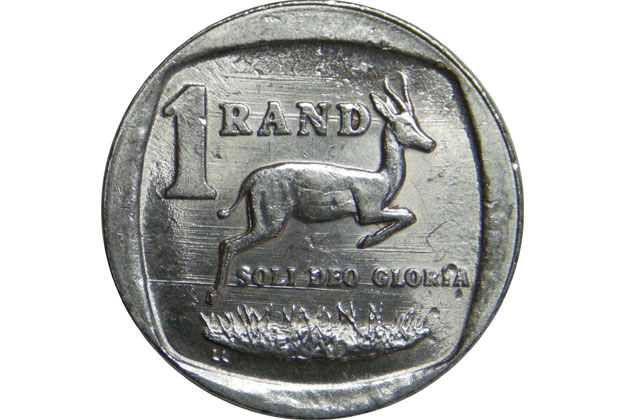
The rand slumped the most five years on Thursday, leading global currency declines against the dollar as a global bond selloff worsened amid concern that spending by the Donald Trump administration will fuel inflation.
The rand fell as much as 5% and traded 4,7% weaker at R14,11/US$ by 6.04pm in Johannesburg, the biggest plunge on a closing basis since September 2011 and the most among 31 emerging-market and developed-nation currencies. The rand fell the most in eight years against the British pound, while government bond yields rose to two-month highs.
A global selloff on Wednesday wiped $337bn off the value of securities in an index of global bonds as Trump’s election to the US presidency sparked speculation that his spending plans would lead to a surge in inflation, prompting the Federal Reserve to raise interest rates. A Bloomberg gauge of the US currency climbed for a second day as benchmark treasury 10-year yields exceeded 2% for the first time since January.
“There’s generalised risk-off sentiment,” said Mohammed Nalla, head of strategic research at Nedbank. “The weakness started around 10.30am and has been relentless. The rand is always a high-beta trade on the global risk-on, risk-off.”
South African government bonds fell a second day, with yields on the benchmark 10-year rand-denominated securities up 20 basis points to 9,03%, the highest since 31 August. The decline in bonds globally saw Bank of America Merrill Lynch’s Global Broad Market Index drop by about 0,7% on Wednesday.
“The market is pricing in a higher probability that the Fed may accelerate the pace of tightening on the back of fiscal stimulus Trump intends to unleash on the US economy,” said Piotr Matys, a strategist for emerging market currencies at Rabobank in London. “The path of Fed’s tightening cycle seems to be more uncertain with Trump at the helm.”
The rand slumped 5,3% against the pound, the most since October 2008, and weakened 4,2% versus the euro. South Africa is particularly susceptible to a US rate increase that would attract more investment to the dollar, as it relies on portfolio inflows to plug a current account deficit forecast at 3,9% of GDP this year.
Trump, the 70-year-old real estate magnate, has pledged to cut taxes and boost spending on infrastructure by as much as $500bn. His proposals would increase the nation’s debt by $5,3 trillion, the non-partisan Committee for a Responsible Federal Budget estimated. The government’s marketable debt has more than doubled under President Barack Obama, to a record of almost $14 trillion.
Quickening inflation means Fed policy makers may act more swiftly to raise interest rates after holding off since increasing them from near zero in December 2015. As of 9 November, there was an 82% chance they will move at their 13 to 14 December meeting, up from 76% at the end of last week, according to data compiled by Bloomberg based on futures. — (c) 2016 Bloomberg LP

